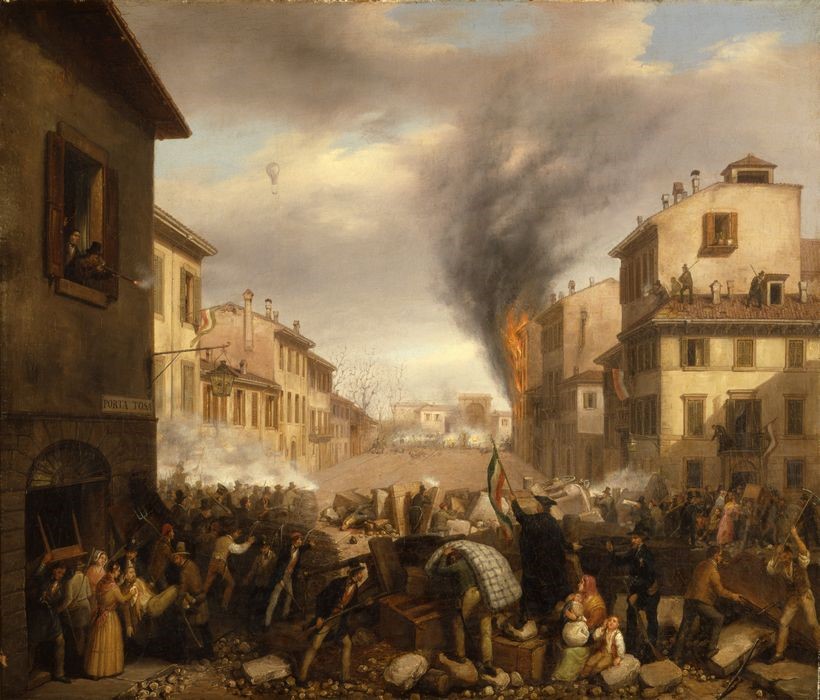The tobacco war
The Milanese strike against the Austrians

Painting of the 5 days of Milan, the final act of the reprisals that began with the tobacco strike - Wikicommons
The so-called "Five Days of Milan" (March 18–22, 1848) is one of the pivotal events of the Italian Risorgimento. This urban uprising led to the expulsion of the Austrians and the city’s governor, Field Marshal Joseph Radetzky, from the capital of the Lombardy-Venetia Kingdom. As is often the case, the causes of the revolt had deep roots in various episodes of conflict between Milanese patriots and the Austrian imperial forces.
One particular episode stands out—especially in light of Milan's current ban on smoking in open public spaces—for its relevance and curiosity. In 1847, tensions between the revolutionary faction and Austrian troops were already high in Milan. Intellectuals were advocating for a boycott of Radetzky's administration (despite his competent management of the city) to transfer control to the Italians. Militarily weaker, the Milanese Patriotic Committee decided to undermine the Austrian Empire economically by organizing a unique form of protest.
Austria held a monopoly on tobacco and smoking in Milan, generating annual revenues of approximately 15 million lire. The protest called on Milanese citizens to abruptly stop smoking, buying cigars, and tobacco (as well as participating in the state-run lottery, another monopoly), effectively cutting off imperial income. Participation in the initiative far exceeded the organizers' expectations, a clear sign that the population was ready to fight against the Austrian occupiers. The movement even spread to nearby towns.
Radetzky avoided direct and brutal intervention but played into the patriots' hands. In January 1848, he hired plainclothes provocateurs tasked with smoking in the faces of Milanese citizens, hoping to provoke reactions that would justify armed repression. The provocations grew increasingly intolerable, and it wasn't long before the Milanese clashed with the Austrians, igniting a full-scale revolt that culminated in the renowned Five Days of Milan.
Alberto Mario Banti, Il Risorgimento italiano, Laterza Publishers, 2013
2025-04-19
Salvatore Ciccarello
